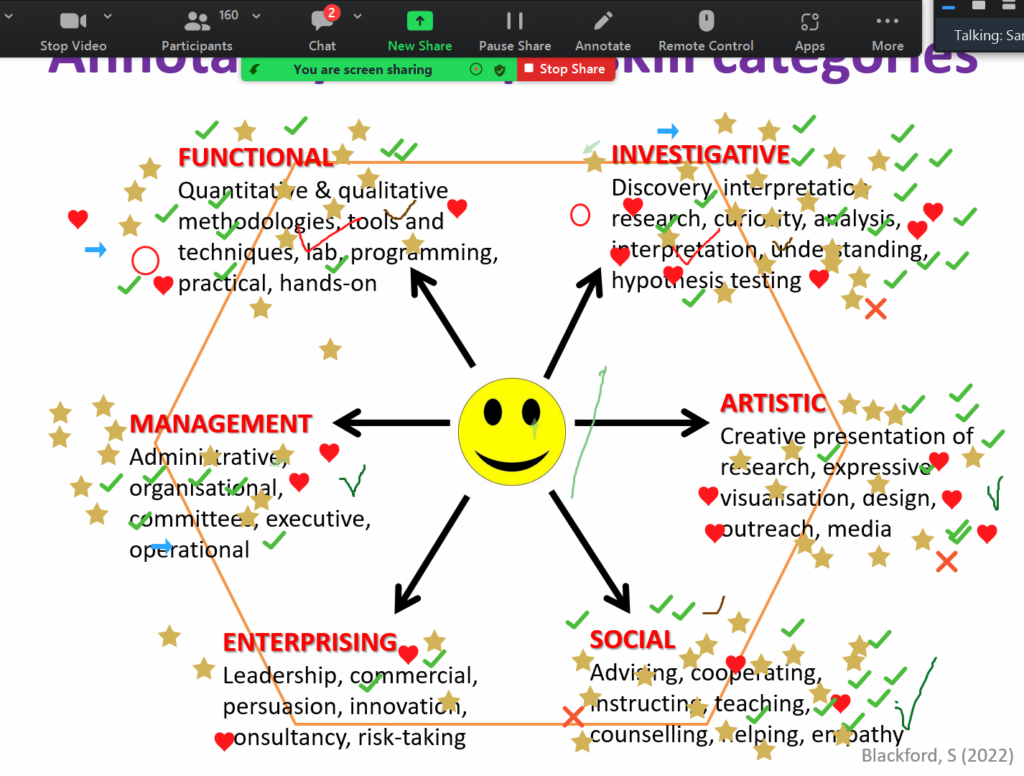
Planning your career is not easy or straight forward.
If you consider the research project that you’re currently undertaking to discover something new about how the world works (amongst other things), then career planning is about discovering something about you and the kind of work you’d like to do now and in the future. The research skills you use every day in your endeavour to find out more about how something works, what is involved, the mechanism, etc., can be mapped directly onto the career development and skills you need to manage your career. That is to say: you need to reflect and discover more about yourself; you need to investigate your employment opportunities (whether within or outside of academia); you need to perfect your transitional methodology (i.e. your self-presentation in the form of your CV and interview technique); you need to network and connect with other professionals, and so on!
Although it seems like the job market is a minefield – difficult and hazardous to navigate – discovering yourself can be even more challenging. Generally speaking, PhD and early career researchers tend to be quite modest and even unaware of their amazing talents, their high-level skills, their can-do attitude and aptitudes. This means that, not only do they tend to under-estimate their abilities, they sometimes under-sell themselves and aim lower or limit themselves too much in terms of their career ambitions.
This is where career professionals come in: They can offer you support in the form of career guidance and coaching techniques and tools; they can provide understanding, empathy and career counselling, they can raise your confidence and levels of self-belief, review your CV and offer you mock interviews to assist you in persuading potential employers to believe in you and offer you a job. They can even employ career theories and models that can help you to understand yourself and identify opportunities for career success.
And on that note, I would like to introduce you to the PhD Career Choice Indicator. It’s a career choice ‘tool’ that I’ve adapted from Holland’s theory of career choice and it’s proved to be very helpful (according to feedback from my career workshops). How does it work? Well, there are four stages to consider:
- First, review all the things you do as a PhD/early career researcher. Brainstorm the tasks – supervising students, designing experiments, analysing data, using specialist tools, techniques and methodologies, communicating your research, teaching, reviewing manuscripts, imagining new ideas and innovations, partnering or collaborating with stakeholders, managing your projects, resources, people, problem solving, etc. The list is long! Here’s a recent word cloud produced by participants of a career workshop:

- Next, categorise all of these tasks according to the Holland’s model above – where would you situate these tasks according to the descriptors?
- What are your 3 favourite categories? What is your least favourite? The other two will come somewhere in between. Of course, it’s not exacting, but you will probably have a clear(ish) idea of those things you look forward to and those that you put off.

- Finally, examine the employment market and the types of jobs being advertised. Consider the types of jobs that include more of what you enjoy doing. This will help you to identify potential careers of interest. After which, you can start to focus in on these types of roles and organisations and plan your career accordingly.
Of course, this is just a snapshot, and there are many other factors involved in choosing your career, e.g. your personality, values, personal situation, work:life balance preferences, etc. However, I hope this gives you a starting point. Here are other blogs and resources to help you to plan and manage your career:
Related content: